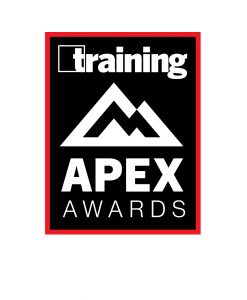
PPL Electric Utilities discovered a trend in 2020: While workers were well versed in electrical theory, and they were trained in how to perform their everyday work, they didn’t always know how to apply the theory to the work, resulting in avoidable electrical incidents and injuries. They knew the theory, and they knew the work, but they failed to “pull the thread” on what connected the theory to the procedures they followed or devices they worked on.
A cross-organizational team performed a common cause analysis reviewing significant events over the last 14 years. They were able to bucket them into seven key theoretical ideas that are taught and tested during initial training. The team performed an exhaustive review of vendor and peer training products to find something that would help close this gap, but didn’t find anything.
So in 2021, PPL asked its Training department to design a repeatable solution to address this gap. The result: a participant-first, behavioral learning model that turned the traditional model on its head.
Program Details
Delivered to all low tension network, underground, line, and substation electricians during the 2021 Continuing Education Training, the Applied Electrical Theory program opened with fictionalized scenarios seeking answers to the question, “What do you think happened?” These were followed by critical thought discussions on how electrical theory applied, and then another scenario tackling the same theory, but in a completely different way. The model was illustrated and applied in a way that subject matter experts (SMEs) could use it in the future while creating learning and continuing education topics.
The solution promoted and encouraged critical thought when doing electrical work, especially during tailboards, stop/timeouts, and troubleshooting. PPL used this type of discovery learning approach in the past for other topics, but never in this way for electrical theory.
Pivoting to address the gap across remote learning during the pandemic, PPL’s Training team helped the SME instructors use techniques deliverable during Zoom training. The Training team also developed some refresher topics (e.g., Review of Events) that field supervisors perform with the field personnel. The organization regularly evaluates significant safety and electrical events, so this approach can be applied if a trend is identified.
Results
In the year after the roll-out, there were no incidents attributed to the electrical theory gap among trained work groups compared to an annual rate of 2.5 incidents over the years.



